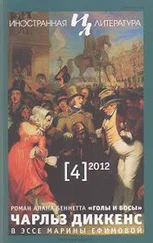Janning, Josef, Charles Kupchan, and Dirk Rumberg, eds. Civic Engagement in the Atlantic Community. Gutersloh: Bertelsmann Foundation, 1999.
Jones, H. M. The Later Roman Empire, 284–602: A Social, Economic and Administrative Survey. Oxford: Blackwell, 1964.
Jones, Howard. «A New Kind of War»: America's Global Strategy and the Truman Doctrine in Greece. New York: Oxford University Press, 1989.
Judis, John B. The Paradox of American Democracy: Elites, Special Interests, and the Betrayal of the Public Trust. New York: Pantheon, 2000.
Kant, Immanuel. Perpetual Peace: A Philosophical Essay. New York: Macmillan, 1917.
Kaplan, Robert D. Balkan Ghosts: A Journey Through History. New York: St. Martin's, 1993.
«The Coming Anarchy». Atlantic Monthly, vol. 273, no. 2 (February 1994), p. 44–76.
The Coming Anarchy: Shattering the Dreams of the Post Cold War. New York: Random House, 2000.
An Empire Wilderness: Travels into America's Future. New York: Random House, 1998.
The Ends of the Earth: A Journey at the Dawn of the 21 st Century. New York: Random House, 1996. Kecskemeti, Paul, ed. Essays on the Sociology of Knowledge. London: Rout-ledge & Kegan Paul, 1952.
Kedourie, Elie. Nationalism. London: Hutchinson, 1966.
Kennan, George Frost. American Diplomacy. Chicago: University of Chicago Press, 1984.
«The Sources of Soviet Conduct». Foreign Affairs, vol. 25, no. 4 (July 1947), p. 566–582.
Kennedy, Paul M. Preparing for the Twenty-first Century. New York: Random House, 1993.
The Rise and Fall of British Naval Mastery. London: Macmillan, 1983.
The Rise and Fall of the Great Powers: Economic Change and Military Conflict from 1500 to 2000. New York: Random House, 1987.
Keohane, Robert O. After Hegemony: Cooperation and Discord in the World Political Economy. Princeton: Princeton University Press, 1984.
Kerr, Clark, John T. Dunlop, Frederick H. Harbison, and Charles A. Myers. Industrialism and Industrial Man: The Problems of Labor and Management in Economic Growth, Cambridge, Mass.: Harvard University Press, 1960.
Kindleberger, Charles P. The World in Depression, 1929–1939. Berkeley: University of California Press, 1973.
Kirschten, Dick. «Ethnics Resurging». National Journal, vol. 27, no. 8 (February 25, 1995), p. 478–484.
Kissinger, Henry. Diplomacy. New York: Simon & Schuster, 1994.
Knock, Thomas J. To End All Wars: Woodrow Wilson and the Quest for a New World Order. New York: Oxford University Press, 1992. Kotkin, Joel. The New Geography: How the Digital Revolution Is Reshaping the American Landscape. New York: Random House, 2000.
Krugman, Paul. Fuzzy Math: The Essential Guide to the Bush Tax Cut New York: Norton, 2001.
Kupchan, Charles A. «After Pax Americana: Benign Power, Regional Integration, and the Sources of a Stable Multipo-larity». International Security, vol. 23, no. 2 (Fall 1998), p. 42–79.
The Persian Gulf and the West: The Dilemmas of Se curity. Boston: Allen & Unwin, 1987.
The Vulnerability of Empire. Ithaca: Cornell Uni versity Press, 1994.
Nationalism and Nationalities in the New Europe. Ithaca: Cornell University Press, 1995.
Kupchan, Clifford A. «Devolution Drives Russian Reform». Washington Quarterly, vol. 23, no. 2 (Spring 2000), p. 67–77.
LaFeber, Walter. The American Age: United States Foreign Policy at Home and Abroad Since 1750. New York: Norton, 1989.
The New Empire: An Interpretation of American Expansion, 1860–1898. Ithaca: Cornell University Press, 1963.
Lancaster, Carol. Aid to Africa: So Much to Do, So Little Done. Chicago: University of Chicago Press, 1999. Landes, David S. The Unbound Prometheus: Technological Change and Industrial Development in Western Europe from 1750 to the Present. New York: Cambridge University Press, 1969.
Legro, Jeffrey W. «Whence American Internationalism». International Organization, vol. 54, no. 2 (Spring 2000), p. 253–289.
Leigh, Michael. Mobilizing Consent: Public Opinion in American Foreign Policy, 1937–1947. Westport, Conn.: Greenwood Press, 1976:
Lind, Michael. «Civil War by Other Means». Foreign Affairs, vol. 78, no. 5 (September — October 1999), p. 123–142.
Lindsay, James M. «The New Apathy». Foreign Affairs, vol. 79, no. 5 (September — October 2000), p. 2–8.
Lodge, Henry Cabot, ed. The Works of Alexander Hamilton. New York: Putnam, 1885–1886.
Luttwak, Edward N. The Grand Strategy of the Roman Empire from the First Century A.D. to the Third. Baltimore: Johns Hopkins University Press, 1976.
Madison, James, Alexander Hamilton, and John Jay. The Federalist Papers. Edited by Isaac Kramnick. London: Penguin Books, 1987.
Mannheim, Karl. «The Problem of Generations». In Essays on the Sociology of Knowledge, edited by Paul Kecskemeti. London: Routledge & Kegan Paul, 1952.
Marcellinus, Ammianus. The Later Roman Empire, 284–602: A Social, Economic and Administrative Survery. Har-mondsworth, Middlesex: Penguin Books, 1986.
Martel, Gordon, ed. American Foreign Relations Reconsidered, 1890–1993. London: Routledge, 1994.
Marx, Karl. Capital: A Critical Analysis of Capitalist Production. Translated by Samuel Moore and Edward Aveling. London: Allen & Unwin, 1971.
May, Ernest R. Imperial Democracy: The Emergence of America as a Great Power. New York: Harcourt, Brace and World, 1961.
Mayer, William G. The Changing American Mind: How and Why American Public Opinion Changed Between 1960 and 1988. Ann Arbor: University of Michigan Press, 1992.
McCoy, Drew R. The Elusive Republic: Political Economy in Jeffersonian America. Chapel Hill: University of North Carolina Press, 1980.
McNeill, William H. The Pursuit of Power: Technology, Armed Force, and Society Since A.D. 1000. Chicago: University of Chicago Press, 1982.
The Rise of the West: A History of the Human Community. Chicago: University of Chicago Press, 1963.
Mead, Walter Russell. «The Jacksonian Tradition and Ame-ricanForeign Policy». National Interest, no. 58 (Winter 1999–2000), p. 5—29.
Special Providence: American Foreign Policy and How It Changed the World New York: Knopf, 2001.
Mearsheimer, John J. «Back to the Future: Instability in Europe After the Cold War». International Security, vol. 15, no. 1 (Summer 1990), p. 5—56.
The Tragedy of Great Power Politics. New York: Norton, 2001.
«Why We Will Soon Miss the Cold War». Atlantic Monthly, vol. 266, no. 2 (August 1990), p. 35–50.
Mill, John Stuart. Principles of Political Economy: With Some of Their Applications to Social Philosophy. Fairfield, N.J.: Augustus M. Kelly Publishers, 1976.
Mitchell, B. R. International Historical Statistics: Europe, 1750–1993. London: Macmillan, 1998.
Modelski, George. Long Cycles in World Politics. Seattle: University of Washington Press, 1987.
Monnet, Jean. Memoirs. Translated by Richard Mayne. Garden City, N.Y.: Doubleday, 1978.
Moravcsik, Andrew. The Choice for Europe: Social Purpose and State Power from Messina to Maastricht. Ithaca: Cornell University Press, 1998.
«Despotism in Brussels?» Foreign Affairs, vol. 80, no. 3 (May — June 2001), p. 114–122.
Murray, Williamson. The Change in the European Balance of Power, 1938–1939: The Path to Ruin. Princeton: Princeton University Press, 1984.
Nicholas, H. G, ed. Washington Dispatches 1941–1945: Weekly Political Reports from the British Embassy. Chicago: University of Chicago Press, 1981.
Nordlinger, Eric A. Isolationism Reconfigured: American Foreign Policy for a New Century. Princeton: Princeton University Press, 1995.
Nye, Joseph S., Jr. Bound to Lead: The Changing Nature of American Power. New York: Basic Books, 1990.
«Globalization's Democratic Deficit: How to Make International Institutions More Accountable». Foreign Affairs, vol. 80, no. 4 (July — August 2001), p. 2–6.
Читать дальше









